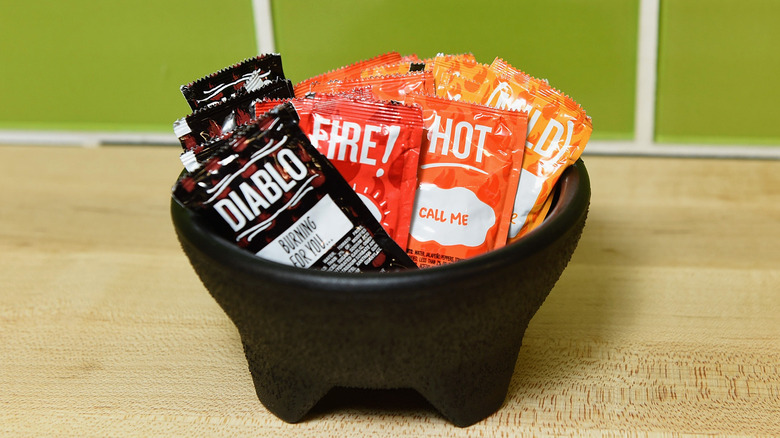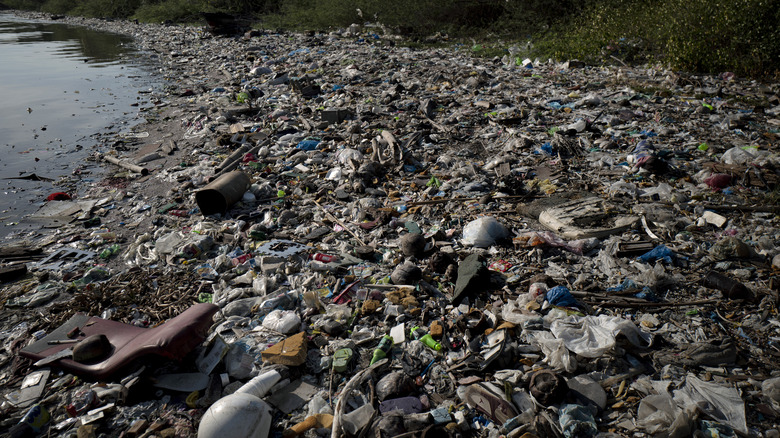The Taco Bell Sauce Packet Recycling Program Is Getting A Much-Needed Upgrade
Many of us may throw empty condiment packets into the trash without a second thought, but Taco Bell is hoping that its newly improved recycling program will help us change our habits. This week, the company announced an upgrade to its sauce packet recycling program.
Taco Bell launched its sauce packet recycling program last year to allow customers to breathe new life into old Taco Bell hot sauces by mailing them back to the company's partner, TerraCycle, to be repurposed. Now, though, the duo is expanding the program to accept empty sauce packets from any brand, per a press release. To take part, customers need to gradually fill a box with empty sauce packets — thoroughly cleaned and dried and from anywhere from Taco Bell to their neighborhood sandwich shop — and send it to TerraCycle using a pre-paid shipping label. TerraCycle will award "points" to consumers who take part in the program, which "can be donated to a non-profit, school, or charitable organization of their choice." The organization, which turns these packets into hard plastic for new recyclable items, says it has raised $44 million for charity through its programs.
Plastic sachets contribute to tons of waste that ends up in the oceans
The program is a win-win-win for Taco Bell, customers, and the environment. The fast food chain gets one step closer to its mission to make its packaging "generally recyclable," for one (via Restaurant Dive), while customers have the "opportunity to reduce the amount of trash sent to landfills and make a positive impact on the environment for future generations," as explained by TerraCycle CEO Tom Szaky in a press release.
Taco Bell's upgraded recycling campaign comes at a crucial time. While sauce packets, also known as single-use sachets, are convenient and easy to use, they now account for 16% of plastic waste in Indonesia alone, where people often purchase goods from toothpaste to coffee in single-serving plastic packages. Many of these are produced by consumer goods giant Unilever, per The Guardian. Unfortunately, however, Unilever's short-lived program to recycle its sachets in Indonesia was an "expensive failure," and the company has yet to present a new solution to its plastic packaging problem, which contributes to tons of waste in the ocean each year.

